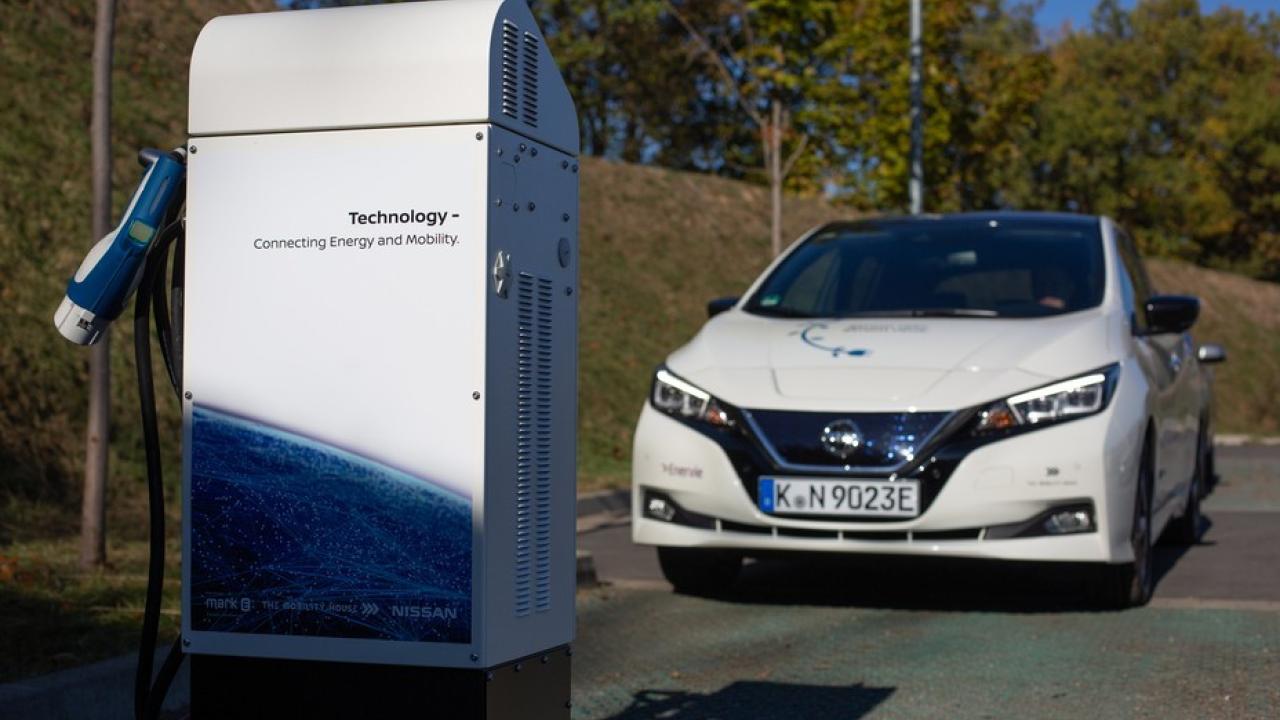Nissan has outlined an action plan to unlock the potential of electric vehicles and battery technology and enable Europe to meet its goal of becoming carbon neutral by 2050.
The proposals outlined in Nissan's new white paper are designed to increase renewable energy generation, electric vehicle (EV) ownership and the integration of vehicles with power grids across European countries.
The White Paper was led by Nissan, as part of the European Innovation Partnership on Smart Cities and Communities (EIP-SCC), a programme supported by the European Commission bringing together industry, cities and researchers.
The White Paper covers the role battery technology will play, the need to ensure batteries have a full second life as mobile or static storage units, and the ways to tackle the current blockers to delivering energy systems such as vehicle-to-grid.
The practical recommendations for authorities include how to rethink how mobility and energy policies are designed and implemented, such as by introducing vehicle incentives which target mid-range EV models to drive uptake in mass-market segments.
It calls for the use of low-emissions zones within urban areas to drive behavioural change and wants public authorities to lead by example by increasing the amount of electrified vehicles in public fleets, including buses and taxis.
The white paper also calls for the simplification of procedures for smart charging installation and the introduction of tax incentives based on environmental impact and the amount of energy sent back to the grid from EVs.
Having mandatory or incentivised installation of renewable and energy efficiency technologies, as well as smart charging points, in new commercial buildings is called for as well as promoting the financial benefits available through integrating electric vehicle ownership with solar panels and energy storage in the home.


